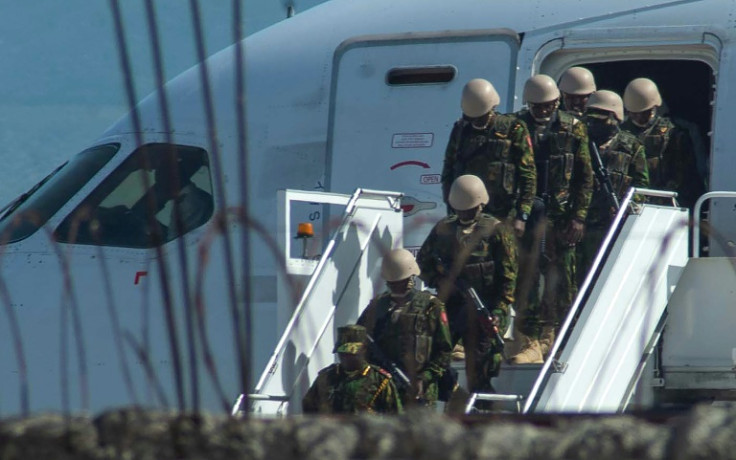
The first contingent of a Kenyan-led international force tasked with helping Haiti quash armed gangs controlling most of its capital, Port-au-Prince, arrived over two weeks ago in the country. And while authorities have highlighted progress, including retaking the country's main hospital, a new report by The Washington Post shows that residents are expecting swifter action.
The outlet details that gangs so far appear "unperturbed" by the forces' arrival, still "setting homes ablaze, attacking police stations and killing with impunity." Police officers, on their end, said they haven't been given a plan to restore order at a general level, with Kenyan officers so far joining them in patrols.
Authorities, in contrast, say the plan is proceeding as planned, and this current, initial stage is one of "evaluation and planning." New head of Haitian National Police, Normil Rameau, said there is not a set day or time for operations, and that "the population may wake up one day to find that operations have taken place and bandits have been stopped or neutralized." "For strategic reasons, we cannot reveal how this will happen."
A Kenyan officer who spoke on the condition of anonymity told the outlet that they are ready to move forward, but that they are waiting for more equipment to arrive before beginning operations. He didn't specify a date for when that would happen.
So far, 400 officials from the African country have reached Haiti. The figure is expected to climb to 1,000, while additional forces from other seven countries (Bahamas, Barbados, Belize, Jamaica, Bangladesh, Benin and Chad) are set to take it to 2,500. Most of the funding is coming from the U.S., with Canada and France also contributing with funding and training.
The force faces a daunting task, as well as phantoms from the past, considering several previous interventions in Haiti have gone awry. They face much more sophisticated gangs and a decimated local police. Haiti currently has about 4,000 officers on duty, a figure that pales to the approximately 38,000 the Untied Nations say the country needs to achieve median levels of policing.
UN officials have also told The Washington Post that gangs have stepped up their efforts to recruit children coinciding with the international force's arrival, considering the possibility to "leverage potential incidents against children involving mission personnel in order to undermine their presence in Haiti."
The United Nations says between 30% and 50% of gangs are currently comprised by children. Local outlet Ayibo Post detailed some of the individual stories that illustrate this statistic, saying that even though its own investigation believes the figure to be "exaggerated," there is still "a solid presence" of children in the gangs.
In the meantime, top U.S. officials asked Haiti's new prime minister, Garry Conille, to focus on establishing an electoral council, as the Caribbean country faces crises on multiple fronts.
Brian Nichols, U.S. Assistant Secretary of State for Western Hemisphere Affairs, said that this step would "give the Haitian people an opportunity to select their leaders democratically for the first time in years."
© 2024 Latin Times. All rights reserved. Do not reproduce without permission.







